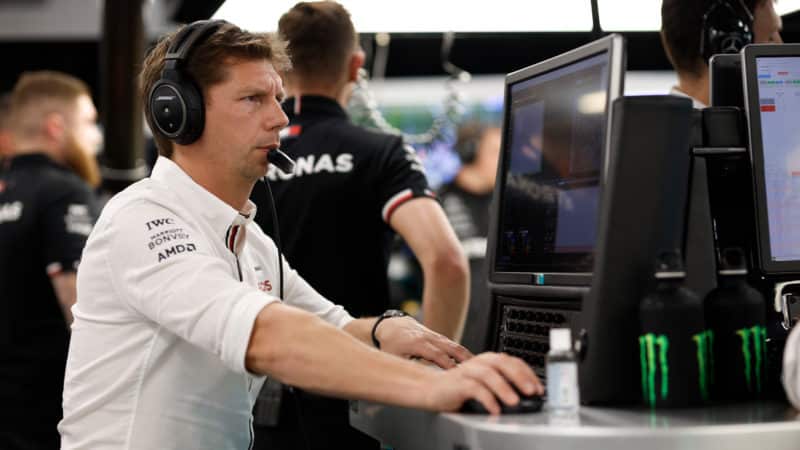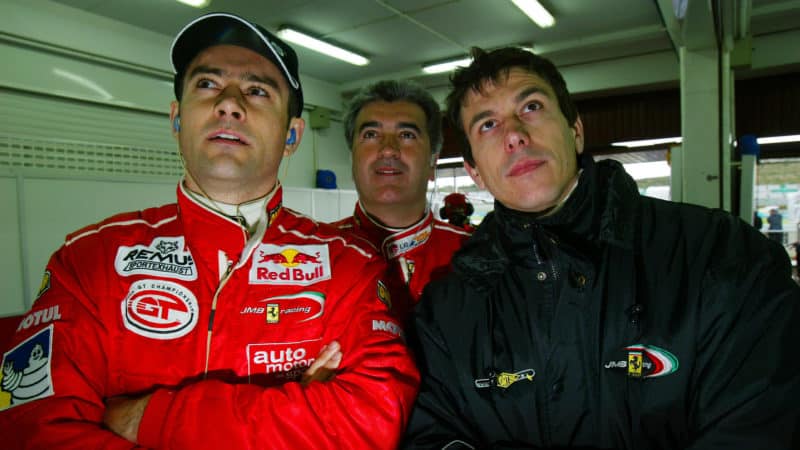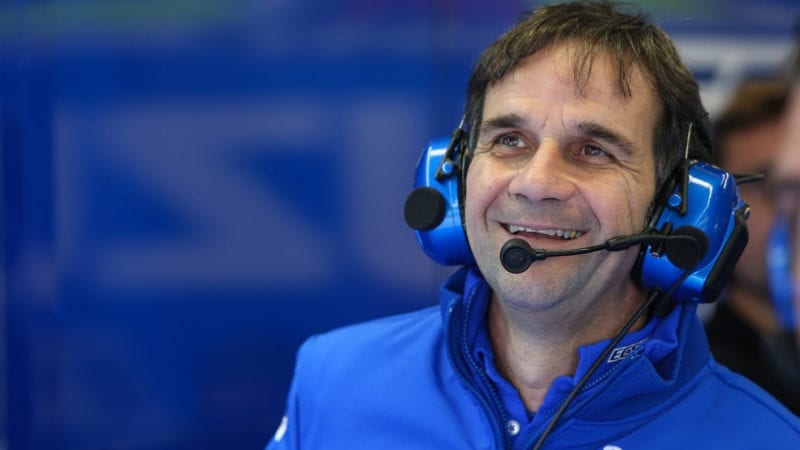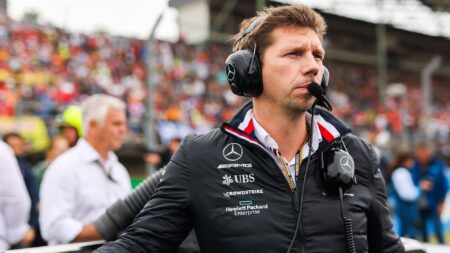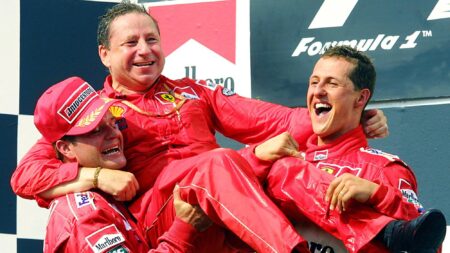So why are we seeing so many engineering or technical guys taking the top jobs? Has the skill set changed in recent years?
One obvious conclusion is that running a team has become such a complex operation, especially in the era of managing resources around the budget cap, that a deep understanding of the technical side is now a must.
“I think the common denominator is that some of the successful team principals have, and James absolutely fits into that, is [they are] over-ambitious and less talented racing drivers,” jokes Wolff when Motor Sport asks him about the trend. “James isn’t over that midlife crisis yet, he still tries!
“But I think coming back to your question, this is such in a way niche position, because you need to have the commercial understanding, the political perspectives, you mustn’t be fooled by what you’re being told by someone in the engineering and technical area. And [it helps if] you’ve been in a car. And I think James ticks many of these boxes.
“On the commercial side, he was very involved in many of the activities that we’ve done in the last few years. And basically, just before the last step was done, he came to me and said, ‘What do you think about that?’ And most often, we were very aligned. And I think the commercial side he absolutely understands.
“So even though James’s background is an engineering background, I would much more put him in my camp in terms of skills and not skills than let’s say a pure engineer.
“But having said that, it’s about the personality, you can have an engineering background and still be the right personality for team principal, or you can have a business or finance background, and also be able to contribute well to an organisation.”
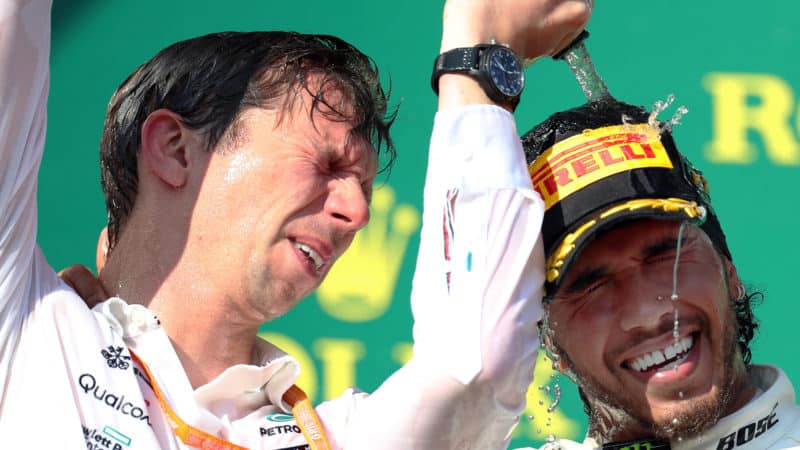
Vowles had been taking an increasingly central role at Mercedes
Ferenc Isza/AFP via Getty Images
Wolff has made it clear that he saw Vowles as his successor at Mercedes, and had gradually been diversifying his workload to help him gain experience in other areas. Thus Vowles could one day have mirrored Stella’s internal promotion. However with Wolff having no intention of stepping aside any time soon Vowles is moving to Williams to make full use of the knowledge he has gained.
“I think one of the successes in our team was planning succession,” says Wolff. “It’s clear that you can’t freeze a successful structure. You need to almost reinvent yourself whilst keeping what’s good. And with James, we always had a very open discussion, where the paths would lead him to.
“The strategy was his core activity, and then we kept adding responsibilities to his job. And some of that was already a team principal’s work. And therefore, in a way we knew that this is going to happen. It could have happened at Mercedes. And now it happened at another team.”
“James has been part of this journey of developing our culture. And certainly he’ll be able to translate that into Williams”
“There are many more pros in James leaving and becoming a team principal in Williams than negatives. From a personal side, obviously James will be missed. I’ve been working closely with him for many, many, many years. We were strong sparring partners when making the difficult calls in the race.
“And we almost never disagreed. James was flying the plane and I was trying to be that sounding partner. And that is definitely a loss from a personal standpoint, and from a professional standpoint of him being the chief strategist.
“But he’s bigger than a chief strategist, he will grow into this team principal role, and this is what he deserves. And you cannot stop someone that’s reaching out for the stars. You just need to embrace that.”
Wolff has always stressed that running a team is all about getting the best out of people, and having been a Brackley man for two decades Vowles played a key role in shaping the organisation. As such he’s developed relevant skills that will now be useful.
“Obviously when we started the journey the kind of prevailing philosophy was this is a race car,” says Wolff. “And a race car needs good aerodynamics, and a strong engine, and so on and so forth.
“But it was almost always neglected that a racing team is a group of people that have joined on a journey. And these people have hopes, dreams, objectives, anxieties, all of that. In Mercedes we’ve embedded a structure where it’s all around the person: we believe and we care.
“And we set up an organisation that demonstrates that every day, you can achieve extraordinary performance. The culture and the values are the immune system of any organisation. And this is where it needs to start. Everywhere, either in a conventional business, or in a racing team.”
